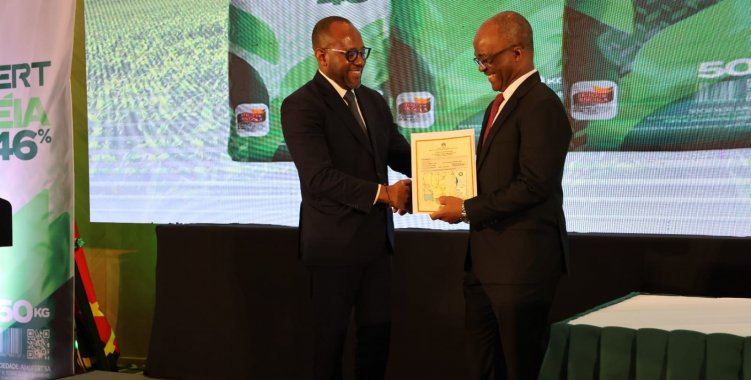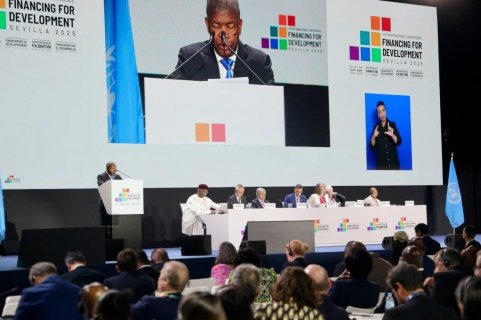In his speech, the president of Afreximbank, Benedict Oramah, highlighted the macroeconomic and social impact of this project, which will produce ammonia and fertilizers for the country, which currently imports almost all of these inputs used in agriculture. Benedict Oramah stressed that support for this type of project guarantees food security, but is also a question of “food sovereignty”, promoting domestic production and reducing dependence “on other [countries], which quickly prohibit the export of food”. “Today, Angola imports more than 1.4 billion dollars of fertilizers per year”, said the official, adding that projects like these should be supported throughout the African continent, where there is raw material. According to the president of Afreximbank, this financial institution has planned a financing line of 2.2 billion dollars to help Angola, stressing that they are the largest financiers of the Cabinda refinery project, and are also in talks with Sonangol, the state oil company, to develop the Lobito refinery.
Regarding the financing of the fertilizer factory consortium, Amufert and Sonangol, the Minister of Mineral Resources, Oil and Gas, Diamantino Azevedo, highlighted the importance of the state oil company creating the conditions for the supply of gas to this project.
This project has all the conditions created “that exist in few parts of the world” for its start-up, said the minister, highlighting that Sonangol (via Sonagás), with a 10 percent stake in the project, will provide the necessary gas.
“To encourage and give confidence to this project, we are encouraging Sonangol and the Opaia group to join forces in Amufert. The contract for the supply of gas at a specific price for this project was approved. The Government provided a small guarantee so that this project could also have these conditions”, he said.
The minister stressed that the concession for phosphate exploration in the province of Zaire was also granted, and also highlighted the signing of a memorandum between the Opaia group and the private company K-Mineração, with a potassium concession in the province of Cabinda, for the production of compound fertilizers.
In statements to the press, the chairman of the board of directors of Amufert, Agostinho Kapaia, said that the construction of the factory is underway, with production expected to start in early 2027.
Agostinho Kapaia thanked Afreximbank for its support, because “not all Western banks risk putting money into emerging countries”, and acknowledged the difficulties in obtaining financing.
“In fact, we had a lot of difficulty finding financing, because banks in other countries defend their businesspeople and their interests, and [there were] banks that basically forced us to give most of the capital to companies in their countries. There are banks in Europe that could only finance the project if the shareholder was European, if the companies that were going to implement the project defended the interests of their countries,” the businessman said, highlighting that the same thing happened in Asia.
According to Agostinho Kapaia, the project is budgeted at around two billion dollars, stressing that the factory has an annual production capacity of 1.3 million tons, so “Angola will no longer need to import fertilizers.”
The businessman stressed that the government provided a guarantee of 20 percent of the total financing, to safeguard the production quantities needed to meet the domestic market, around 300 thousand tons.







